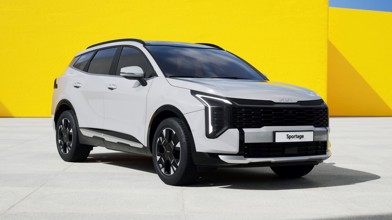Digital car keys are becoming more common, offering convenience by allowing drivers to unlock and start their vehicles using a smartphone. But are they safe?
As vehicle connectivity expands, so do concerns around cybersecurity, hacking risks and system failures. This simple guide breaks down the security aspects of digital car keys in New Zealand, their vulnerabilities, and best practices for minimising risks.
How do digital car keys work?

Digital car keys use wireless communication technologies such as Bluetooth Low Energy (BLE), Near Field Communication (NFC) and Ultra-Wideband (UWB) to authenticate access.
Some manufacturers integrate their digital key systems with Apple Wallet or Android Digital Key, allowing seamless functionality across devices.
Unlike traditional key fobs, digital keys rely on smartphones and encrypted authentication protocols, reducing the likelihood of traditional relay attacks but introducing new cybersecurity considerations.
In New Zealand, brands like BMW, Tesla and Polestar already offer digital car key functionality on select vehicles, with more carmakers likely to follow.
Security strengths of digital car keys

Encryption and authentication
Digital keys use advanced encryption to prevent unauthorised access.
Unlike older key fobs, which were vulnerable to relay attacks, digital keys employ public-key cryptography and secure tokenisation. This means that even if a hacker intercepts the communication, decrypting the data is significantly harder than cloning a traditional key signal.
Customisable access control
One of the biggest advantages of digital car keys is the ability to control and share access remotely.
Many systems allow temporary access permissions, restricting when and how a vehicle can be used. This is particularly useful for car-sharing, fleet management or lending a car to a friend.
Device-based security
Most digital keys require biometric authentication such as Face ID, fingerprint scanning or PIN verification before granting access. This adds an extra layer of security, ensuring that even if a phone is stolen, the thief cannot easily unlock or start the vehicle.
Potential risks and vulnerabilities

Cybersecurity threats
No system is completely invulnerable. Cybercriminals are constantly developing new attack methods, including:
Man-in-the-middle attacks: Hackers intercept communication between the phone and the vehicle.
Malware and phishing: A compromised smartphone could expose digital key credentials.
Server breaches: If a manufacturer’s servers storing key data are hacked, widespread vulnerabilities could emerge.
Phone dependency and failures
A major limitation of digital keys is reliance on smartphones.
If your phone battery dies, is lost or suffers a system failure, accessing your vehicle becomes problematic. Some manufacturers provide backup NFC cards, but not all.
Compatibility issues
Not all smartphones are compatible with every digital key system.
Software updates, manufacturer restrictions and network connectivity can all impact functionality. Users should check for compatibility before relying solely on a digital key.
Best practices for safe use

To minimise risks, follow these best practices:
Enable Two-Factor Authentication (2FA): Where possible, use multi-layer authentication for added security.
Keep your software updated: Regularly update your smartphone and digital key app to patch security vulnerabilities.
Use strong authentication: Enable biometric security or strong PINs to prevent unauthorised access if your phone is lost.
Have a backup plan: Carry a physical key or NFC card in case of phone failure.
Be wary of phishing attempts: Do not share login credentials or install apps from unverified sources.
Are digital car keys worth using in NZ?

Digital car keys offer a blend of convenience and security, reducing reliance on traditional key fobs while enabling remote access and sharing.
However, they introduce new cybersecurity risks and phone dependency issues. Whether they are “safe” depends largely on how well users manage their digital security.
As automotive encryption and cybersecurity evolve, digital keys are expected to become more secure, but users must remain proactive in safeguarding their access.
For those who value convenience and have robust digital security habits, digital car keys are a viable and relatively safe option.
However, for those who prefer a fail-safe method with fewer technological dependencies, a traditional key may still be the better choice.





